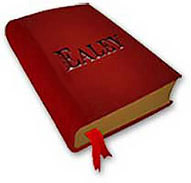The life of Edward Thomas Pinniger (c1839-1919) fictionalised by ChatGPT in the style of Dickens
IT is a truth little regarded that a man’s life, however humble or obscure in its beginnings, may wind through fortunes as varied as the courses of great rivers—sometimes sluggish, sometimes swift; at moments lost in barren sands, and at others gleaming grandly in the sun. Such was the case with Mr. Edward Thomas Pinniger, whose journey took him from the quiet market town of Newbury to the very frontiers of empire, where the clang of iron and the hum of telegraph wires told the story of an age unwilling to be still. Born amidst the cobbled streets and grey stone of Berkshire, young Edward was the son of Broome Pinniger, a solicitor of sound reputation but dwindling means, and his wife, Elizabeth, who traced her lineage to the rugged Cornish Trevethicks, a family of determined spirits. It was remarked by those who knew the boy in his infancy that he had a peculiarly thoughtful brow, as though he contemplated his fate before he could properly comprehend it.
At twelve years of age, he was dispatched to the Reverend Jacob’s school in Calne, a house of learning whose virtues were extolled by those who did not have the misfortune to experience them firsthand. Here, young Edward learned his Latin, his sums, and, more valuably, the art of endurance, which he would later find of greater use than any conjugation of verbs.
But the world would not wait for schoolroom lessons. At sixteen, with a purse light but ambitions heavy, Edward procured for himself an ensign’s commission in the 58th Foot, exchanging it that very day for one in the 28th Foot, as a man might trade one burden for another of equal weight. He was soon transferred again, this time to the 8th Foot, known in legend as The King’s Liverpool Regiment, and thus found himself upon the deck of the Indiana, bound for India, that great and restless jewel in the Crown of England.
The crossing was long, and the stories among the men grew wilder the closer they drew to Calcutta. Young Pinniger listened, half fascinated and half appalled, as his fellow officers spoke of native princes with vast harems, of jungles where a man could be swallowed by a tiger without so much as a scream, and of the terrible mutiny that had only recently burned across the land. If he felt trepidation, he did not speak of it, nor did he shrink when, at last, the shores of Hindustan rose before him, dark with mango trees and fever dreams.
What followed was a chapter in his life that remains clouded in uncertainty, for records tell little of his exact doings between his arrival in India and the year 1859, when he, rather suddenly, sold his commission and left the army behind. Some whisper that he witnessed horrors that turned his blood cold; others say he found no glory in marching under a sun that reduced men to husks. Whatever the truth, Edward Pinniger stepped away from the sword and took up the wire—specifically, those wires that now stretched across the great subcontinent, connecting the beating heart of the empire with its furthest extremities.
It was thus that in 1863, he was found in Burdwan, a man transformed. No longer the young ensign clutching a sword too heavy for his grip, he was now an inspector in the Telegraph Department of the East Indian Railway, overseeing the delicate strands of communication that bound the vast and seething land together. That same year, in the quiet, fragrant heat of Serampore, he took a wife, Anna Eweler Oman, who bore him children in steady succession, as was the way of wives in those days.
Through stations and outposts, Edward’s name passed, shifting from Burdwan to Khanoo Junction, then to Luckeserai, and ever onward, as the railway itself wound its way across the land. His reputation grew not only as a man of machines but as one of curious devotion. It was said he could stand by a telegraph pole for hours, watching the quivering pulse of messages travel unseen through the wires, his mind full of thoughts that others could not guess. It was also at this time that he joined the Brotherhood of Freemasons, a society whose secrets he carried as carefully as he did the railway’s many timetables.
But the wires of life, like those of the telegraph, are subject to sudden severance. In 1881, fate dealt him a cruel hand. His beloved wife, Anna, was taken by that most ruthless of foes—cholera—leaving him a widower, his children scattered like dry leaves before the wind. What thoughts occupied his mind in those dark days, who can say? Grief, perhaps, but also, perhaps, a growing conviction that he was meant for something yet unseen.
The railway, ever insatiable, did not release him, but Edward Pinniger’s path began to shift. Where once he was the overseer of wires and signals, he now turned his thoughts to the souls of men. In 1896, after years spent in stations and lodges, he was suddenly and startlingly transformed: Edward Pinniger, once a soldier, once a signaller, became the Reverend Edward Pinniger, Railway Chaplain of Lucknow.
If there were murmurs among his old colleagues, if there were raised eyebrows among those who had seen him wield a sextant rather than a Bible, he did not heed them. He set to his new calling with the same quiet diligence that had marked his previous careers. He married the children of railwaymen; he buried their dead. He spoke over the graves of infants and of old men alike, his voice carrying the same solemn weight as the whistle of the night train through the sleeping plains.
For nearly two decades, he carried out his duties, no longer measuring the pulse of the telegraph but the souls of men. And then, at last, when his hands had grown too weary even to lift a prayer book, he laid down his burden. The registers marked him as 'Late Railway Chaplain.'
In the year of our Lord 1919, Edward Thomas Pinniger breathed his last, his life finally come to rest in the soil of Lucknow, which had known both his voice and his silence. In the end, he was neither soldier nor engineer, neither clerk nor signaller, but simply Clerk in Holy Orders, a title that, if simple, was perhaps the truest of all he had ever held.
Thus ends the tale of a man whose life was written not in ink but in iron, in wire, and, at last, in faith. Whether he himself ever saw the pattern in the threads that bound him to his fate, no one can say. But if there is justice in the hereafter, one imagines that, somewhere beyond the veil, the good Reverend Pinniger looks upon his tangled path and smiles.

